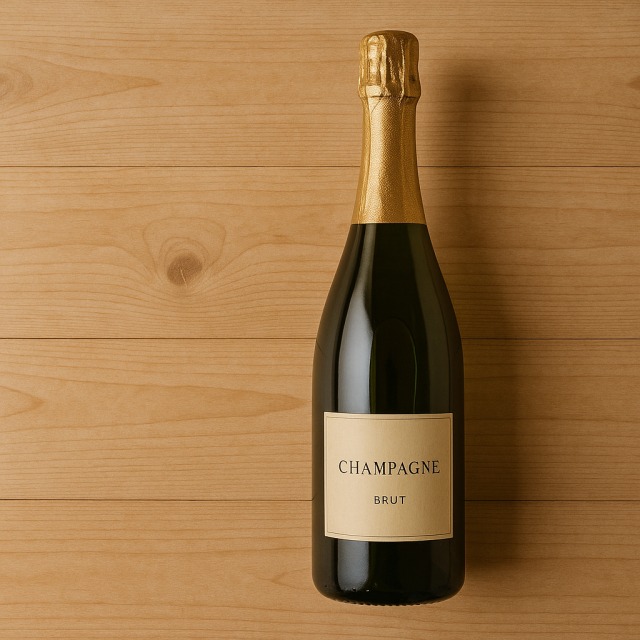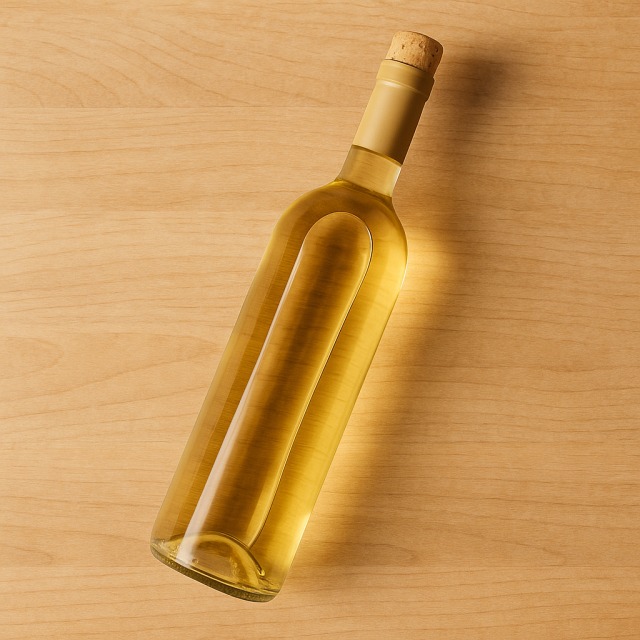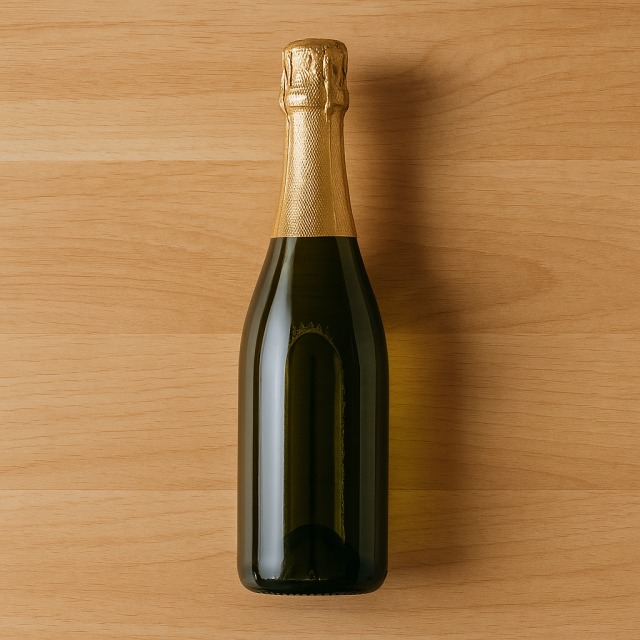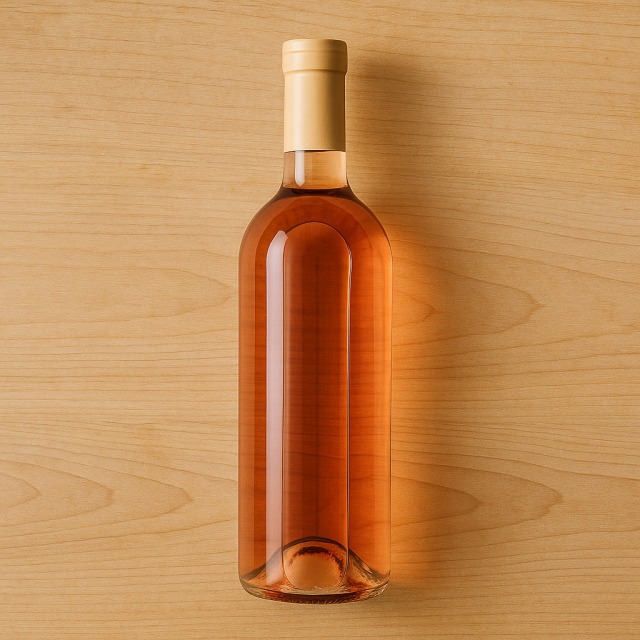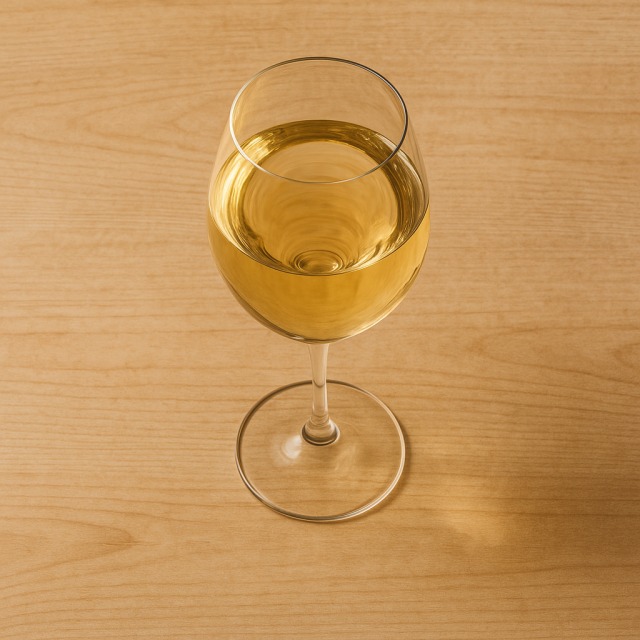Calorie Chart / Beverages / Champagne - Sweet
How Many Calories Are in Sweet champagne?
Calculation of the nutritional value & Recommended Dietary Intake of sweet champagne
For ml and a calorie requirement of kcal
| Calories 110 kcal | Proteins 0 g | Lipids 0 g | Carbohydrates 2 g |
| 6% | 0% | 0% | 1% |
Health benefits of sweet champagne
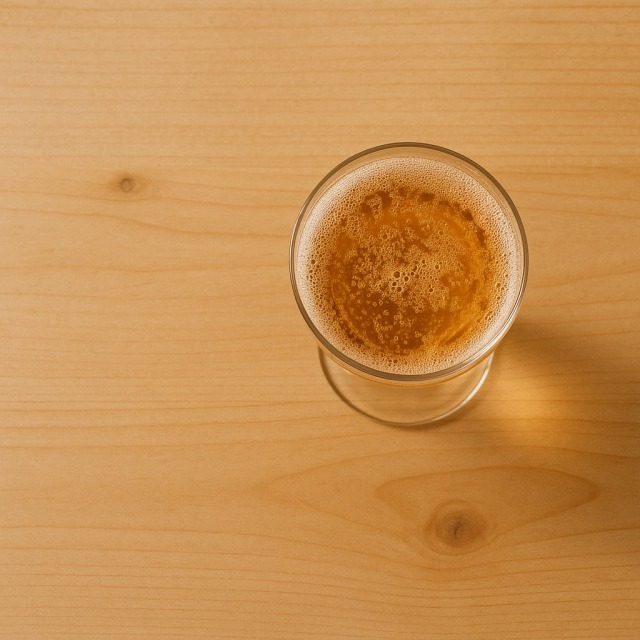
Sweet champagne - 100ml
Calories 88 kcal
Proteins 0 g
Lipids 0 g
Carbohydrates 1.6 g
With around 88 calories per 100 g, sweet champagne is a moderately high-calorie sparkling wine: its energy comes almost exclusively from alcohol and residual sugars, as it contains no proteins and no lipids. Trace minerals such as potassium and magnesium, as well as small amounts of B-group vitamins formed during fermentation, are present, though in modest quantities.
Like other sparkling wines, sweet champagne delivers polyphenols (including the much-discussed resveratrol) that are supposed to contribute to cardiovascular protection when consumption remains moderate. These antioxidants come from the grape skins and are comparable to those found in red wine, although in smaller concentrations.
On the calorie scale of alcoholic drinks, it sits between light beverages such as dry cider and richer liqueurs like rum. Remember that all the calories are "empty": they provide energy without significant fibre, proteins, or essential fats.
A brief historical note to enrich your search for "sweet champagne calories": the addition of the dosage (a mixture of reserve wine and sugar) after disgorgement was popularised in the 19th century to satisfy markets with a sweet palate, notably in Russia. The practice endures today, yielding a cuvée with more residual sugar—and therefore more calories—than the drier brut style.
Tips for incorporating sweet champagne into a balanced diet
Because its calories come from alcohol and sugar, the first rule is moderation: the official guideline is one 100–120 ml glass. Pair it with light, iodine-rich starters such as oysters or a slice of smoked salmon to balance the sweetness without adding excessive calories to the meal.
For festive desserts, sweet champagne works particularly well with a bowl of fresh strawberries, a creamy tiramisu, or a classic fruit salad. Choosing fruit-based endings keeps the overall calorie load lower than pairing the wine with buttery pastries.
In the kitchen, reduce a glass of sweet champagne to make a glaze for pan-seared foie gras or to deglaze sautéed scallops. The natural sugars caramelise, so you achieve complex flavour without adding extra butter—again a smart way to manage calories while enjoying a gourmet note.
If you are monitoring calories closely, match your flute with a plate of crunchy cucumber sticks and tzatziki; the volume from vegetables helps satiety while keeping the calorie budget in check. Conversely, avoid heavy sides such as French fries that would double the calorie tally in minutes.
Frequently Asked Questions
- How many calories are in sweet champagne?
- Sweet champagne provides 88 kcal per 100 g.
- Is sweet champagne higher in calories than brut champagne?
- Yes. The dosage added to sweet champagne raises the residual sugar and pushes calories above those in brut champagne, which averages 70–75 kcal per 100 g.
- Do the calories in sweet champagne come from sugar or alcohol?
- Almost all the calories stem from alcohol and the extra sugar added during dosage; proteins and lipids are absent.
- Can I include sweet champagne in a weight-loss plan?
- You can, but account for its calories: limit yourself to one glass (≈90 kcal) and compensate by choosing lower-calorie dishes like broccoli or salmon without sauce.
- Does chilling sweet champagne change its calorie content?
- No, serving temperature does not alter calories; it only affects perceived sweetness and effervescence.
- Are there any nutrients that offset its calories?
- The drink contains trace minerals and polyphenols, but not enough proteins, fibre, or healthy fats to counterbalance its caloric density—so moderation remains key.
Similar foods
Alcohol consumption may be harmful to your health. Please drink responsibly. Do not drink and drive. Not recommended during pregnancy. Must be of legal drinking age.
Information provided by Calorie Menu may contain inaccuracies or errors. It cannot, under any circumstances, substitute medical advice or medication.
